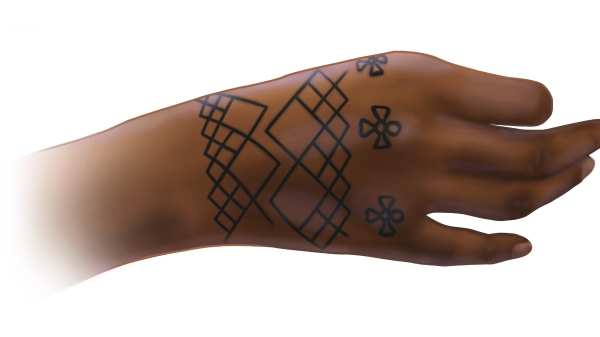Chemist joins ASU to tackle problems surrounding polymers, sustainability

Associate Professor Yoan Simon
Trained as a chemist, Associate Professor Yoan Simon’s research straddles synthetic organic chemistry, materials science, chemical engineering and energy research.
He has recently joined the School of Molecular Sciences and the Biodesign Center for Sustainable Macromolecular Materials and Manufacturing, or SM3, at Arizona State University.
“The new scientific frontier is at the interface of multiple scientific disciplines, and I am so excited to join the rich array of expertise at ASU to tackle some of the most pressing issues in terms of sustainability and manufacturing,” Simon said. “I think all the ingredients are there to make ASU a leader in the field.”
Simon is known as a passionate researcher with a commitment to addressing pressing environmental concerns.
His 10-year-old daughter's inquiry, "Aren't plastics bad?" serves as a poignant reminder of the urgency to explore sustainable solutions within the realm of polymer science, driving Simon's work towards a more eco-conscious future.
He holds a bachelor’s degree and master’s degree from the National School of Chemistry Montpellier (École nationale supérieure de chimie de Montpellier). His first foray into research was in the labs of Bernard Boutevin, where he learned about controlled radical polymerization.
He then moved to Massachusetts and started a PhD in polymer science and engineering from the University of Massachusetts Amherst under the guidance of E. Bryan Coughlin, working on hybrid organic/inorganic materials. After seven years in Switzerland as a postdoc and junior faculty, Simon worked in the School of Polymer Science and Engineering at the University of Southern Mississippi for eight years.
“That’s what I love about polymer science: it's inherent multidisciplinarity and applicability to just about everything. But that’s also wherein the problem lies,” Simon said. “We have been using polymers in all facets of our everyday life without thinking about their circularity or end-of-life. I believe that’s why (the Biodesign Center for Sustainable Macromolecular Materials and Manufacturing) is in a unique proposition to upend this paradigm and train the next generation of macromolecular scientists and engineers."
Simon says that we need next-generation macromolecular science students to be trained in the classical way as well as in sustainability. There is a huge demand from industry for a broader perspective.
Simon's research group focuses on stimuli-responsive materials, whereby the architecture of the macromolecular construct is such that it will respond to a given cue, such as light, force or chemical. One such example is mechanochemistry, wherein mechanical force can be leveraged to create some chemistry. This approach has some sustainability impacts, whether in depolymerization strategies or in understanding how to prolong the lifetime of a part and therefore limit waste generation.
"The group’s vision of sustainability is global — from using renewable feedstock to end-of-life to water purification and energy generation,” Simon said.
Another area of research revolves around light upconversion, a method that has the potential to increase the yield of both solar cells and water splitting (producing green hydrogen).
Simon’s research has been recognized at several stages in his career. He is the recipient of a Leonardo Da Vinci Fellowship, two Massachusetts Space Grant Consortium Grants and an ETH Fellowship. In 2015, Simon was the Hans and Marlies Zimmer International Scholar at the University of Cincinnati, and he received an NSF CAREER award in 2020.
Simon says that the breadth and excellence of research at ASU was a major driver of his move and he is excited to engage with the Sun Devil community across all campuses.
“With the CHIPS act, the NSF Southwest Sustainability Innovation Engine (and) the advent of the new medical school at ASU, the need for new macromolecular materials designed with sustainability in mind is ever more pressing, and we are gearing up to tackle these challenges head-on,” he said.
More Science and technology
Findings on adenoviruses in baby gelada monkeys provide a window into our own cold and flu season
If you have young kids or spend time around day care centers, you know the drill: Someone gets a cold, and soon the whole group is sniffling and sneezing. Now imagine that same pattern playing out in…

Student teams create AI tools to help neurodivergent learners
When Stevie Cervantes was a first-year student at Arizona State University, she shied away from using AI.“AI was everywhere and my friends were asking me, ‘Oh, do you use ChatGPT?’ And I hadn’t even…

ASU researchers shed light on ancient tattoos in the Nile Valley
Long after an archaeological excavation, discoveries can still be made. One such example of this is newly discovered tattoos from ancient Nubia, nearly doubling the amount previously known from the…